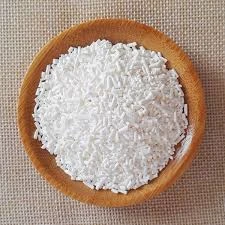
e120 food additive
Understanding E120 The Natural Food Additive
In the vast world of food additives, E120, also known as cochineal extract or carminic acid, stands out as a fascinating example of a natural colorant. Derived from the cochineal insect, E120 has a rich history and is used to enhance the visual appeal of various food products. This article delves into the origin, applications, and controversies associated with E120, providing a comprehensive overview of its role in the food industry.
Origin of E120
Cochineal insects, scientifically known as Dactylopius coccus, are native to Central and South America. These tiny scale insects thrive on cactus plants and have been harvested for centuries, dating back to the Mayan and Aztec civilizations. The vibrant red dye, known as carmine, is produced by the female cochineal insects, which contain high concentrations of carminic acid. The process of extracting this dye involves collecting the insects, drying them, and then crushing them to release the vivid pigment.
While synthetic colorants have gained popularity over the years, E120 remains a prominent choice for manufacturers who prefer natural ingredients. This preference is largely due to a growing consumer demand for transparency and a desire for fewer artificial additives in food products. E120 not only offers a rich red hue but also aligns with the natural trends that many brands aim to embody.
Applications in Food Products
E120 is widely used in the food industry to impart a rich, red color to numerous products. It is commonly found in beverages, dairy products, candies, sauces, and even meat products. For instance, many yogurts and ice creams utilize E120 to enhance their visual appeal, making them more attractive to consumers, especially children. Similarly, it can be seen in fruit juices and soft drinks that require a vibrant red or pink shade.
One of the key advantages of E120 is its stability; it can withstand various pH levels and temperatures, making it suitable for a range of applications. This versatility, coupled with its natural origin, has solidified E120's place as a favored food additive among brands seeking to appeal to health-conscious consumers.
e120 food additive

Controversies Surrounding E120
Despite its widespread use, E120 is not without controversy. The extraction process requires the killing of millions of insects, leading to ethical concerns regarding animal welfare for those who advocate for vegan and cruelty-free products. As a result, some consumers are turning away from products containing E120 in pursuit of alternatives that do not involve animal-derived ingredients.
Moreover, individuals with allergies or sensitivities to cochineal extract may experience adverse reactions when consuming products containing E120. This has led to increasing demands for transparent labeling that clearly indicates the presence of this additive. Many food manufacturers are now responding to these concerns by exploring alternatives such as beet juice, paprika, or synthetic dyes that do not pose the same ethical or allergenic issues.
Regulatory Status
In many countries, E120 is classified as a safe food additive and is approved for use by regulatory agencies, including the European Food Safety Authority (EFSA) and the Food and Drug Administration (FDA) in the United States. However, the necessity for clear labeling remains paramount, allowing consumers to make informed choices about the products they consume.
Conclusion
E120, or cochineal extract, serves as a prime example of the complex landscape of food additives. While it offers natural coloring benefits and meets the demand for transparency, it also raises valid concerns about animal welfare and consumer safety. As the food industry continues to evolve, the future of E120 will likely depend on balancing these elements—protecting consumer rights, ensuring ethical practices, and catering to the preference for natural ingredients.
As consumers, staying informed about food additives like E120 empowers us to make conscious choices aligning with our values. Whether it is through opting for products that use alternative colorants or continuing to enjoy the vibrant hues that E120 provides, understanding these additives is crucial for navigating the food we consume daily.
-
Sodium Dichloroisocyanurate Safety Handling ProtocolsNewsJul.29,2025
-
Mining Chemicals for Copper Extraction Processes GuideNewsJul.29,2025
-
Fertilizer for Sale Shipping and Storage TipsNewsJul.29,2025
-
Dimethyl Disulfide as Sulfurizing AgentNewsJul.29,2025
-
Benzotriazole Safety Data Handling and Storage GuidelinesNewsJul.29,2025
-
Ammonium Bicarbonate Safety Handling Storage GuidelinesNewsJul.29,2025
-
The Transformative Role Of Trichloroisocyanuric Acid in Water TreatmentNewsJul.23,2025
Hebei Tenger Chemical Technology Co., Ltd. focuses on the chemical industry and is committed to the export service of chemical raw materials.
-

view more DiethanolisopropanolamineIn the ever-growing field of chemical solutions, diethanolisopropanolamine (DEIPA) stands out as a versatile and important compound. Due to its unique chemical structure and properties, DEIPA is of interest to various industries including construction, personal care, and agriculture. -

view more TriisopropanolamineTriisopropanolamine (TIPA) alkanol amine substance, is a kind of alcohol amine compound with amino and alcohol hydroxyl, and because of its molecules contains both amino and hydroxyl. -

view more Tetramethyl Thiuram DisulfideTetramethyl thiuram disulfide, also known as TMTD, is a white to light-yellow powder with a distinct sulfur-like odor. It is soluble in organic solvents such as benzene, acetone, and ethyl acetate, making it highly versatile for use in different formulations. TMTD is known for its excellent vulcanization acceleration properties, which makes it a key ingredient in the production of rubber products. Additionally, it acts as an effective fungicide and bactericide, making it valuable in agricultural applications. Its high purity and stability ensure consistent performance, making it a preferred choice for manufacturers across various industries.











